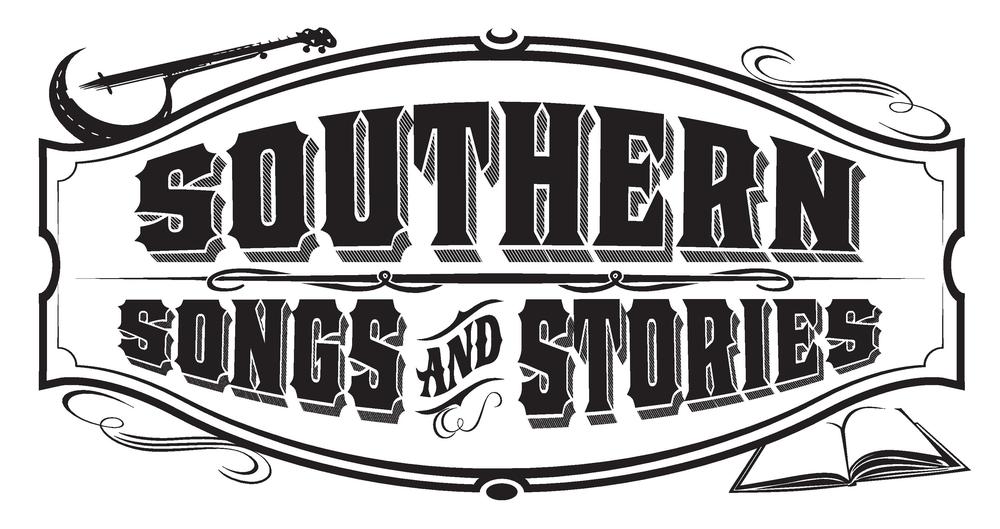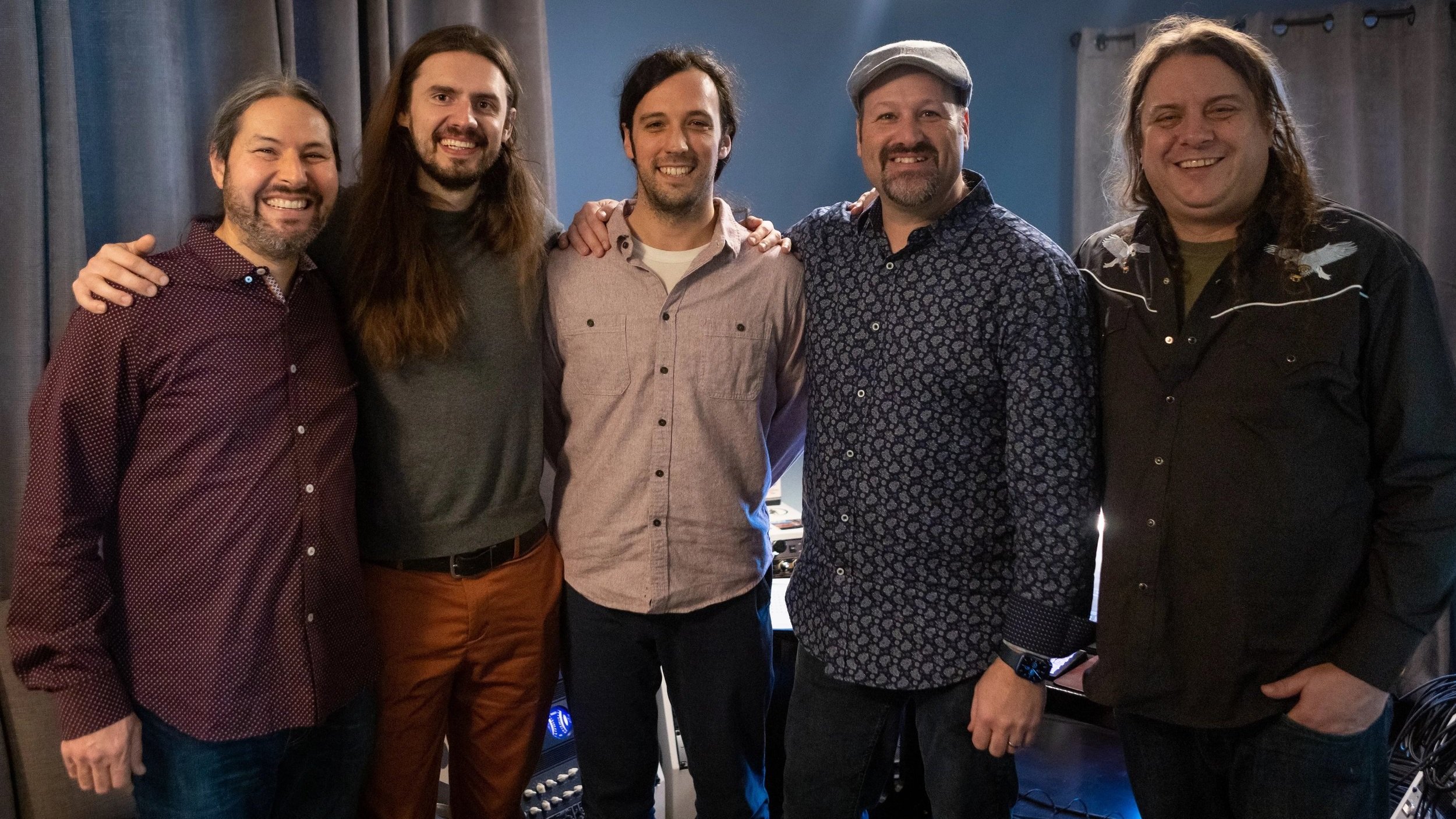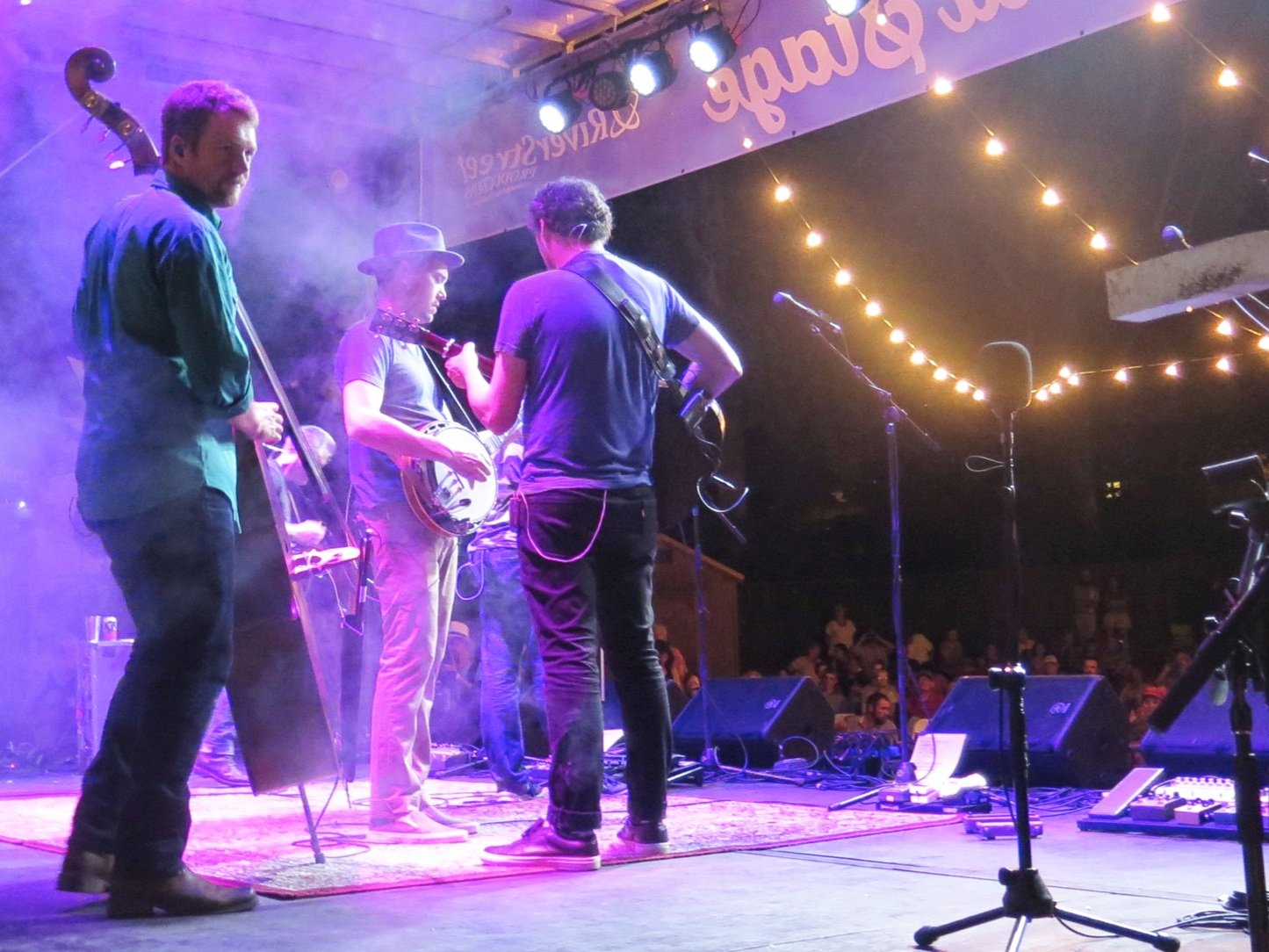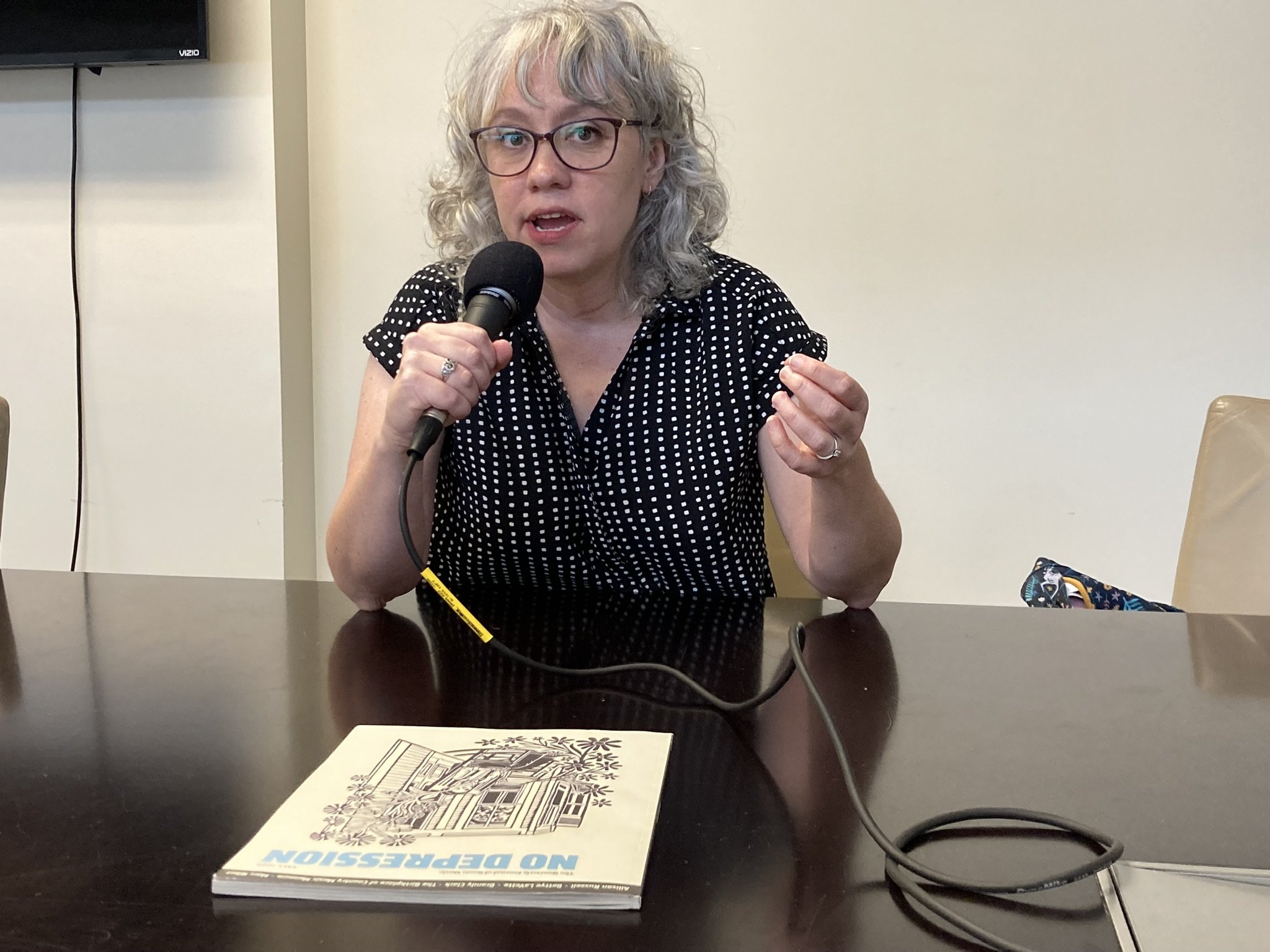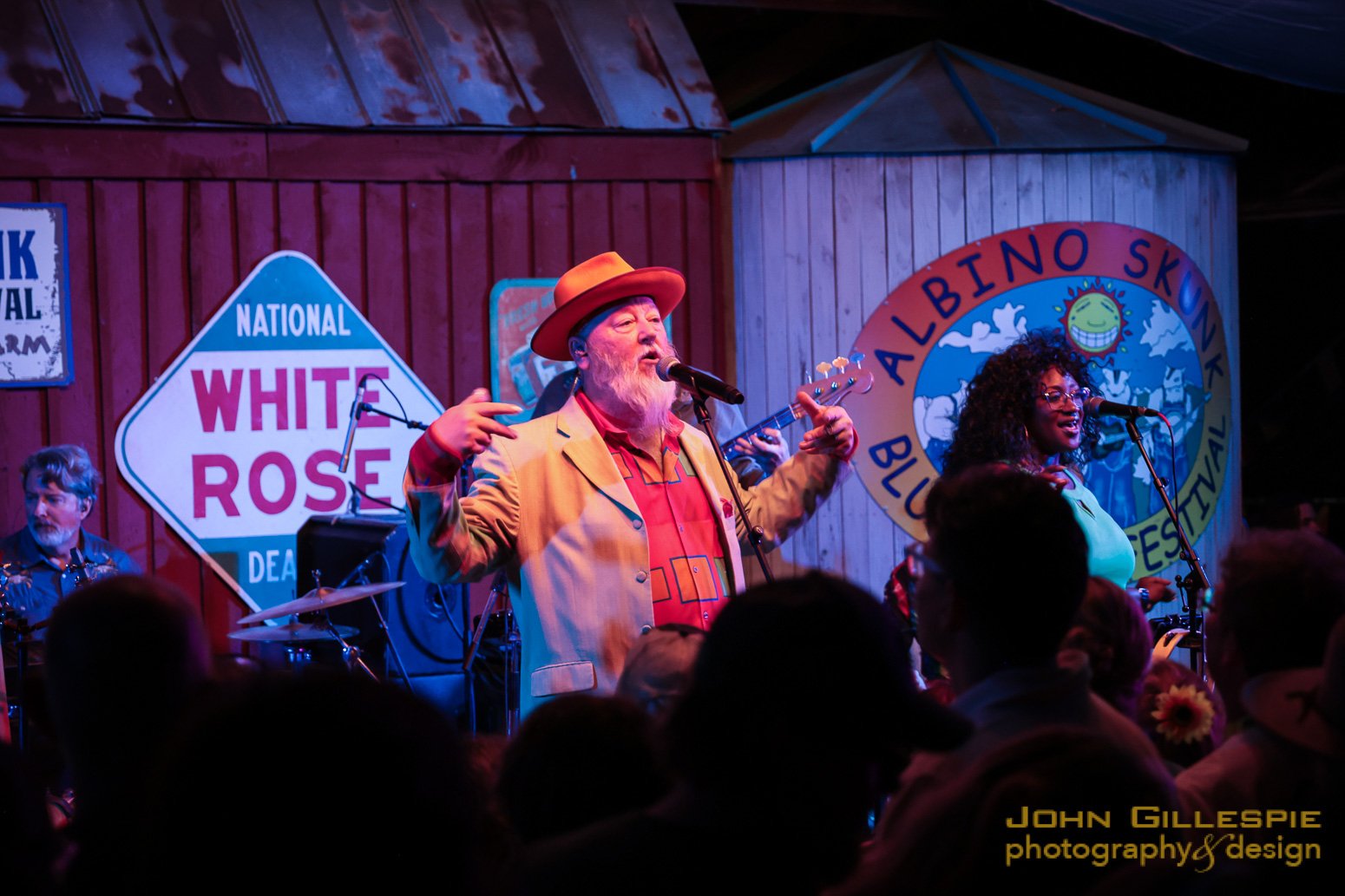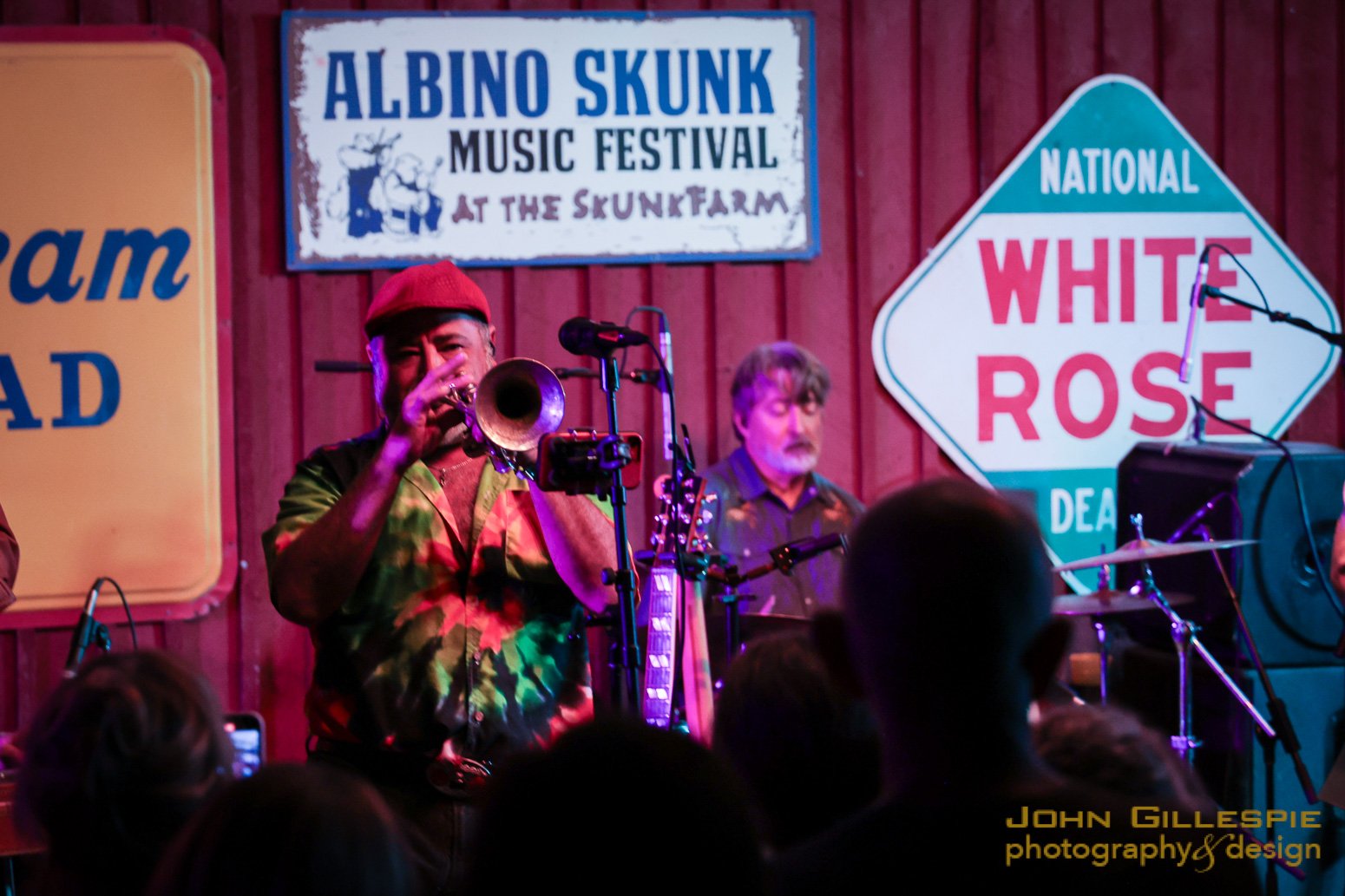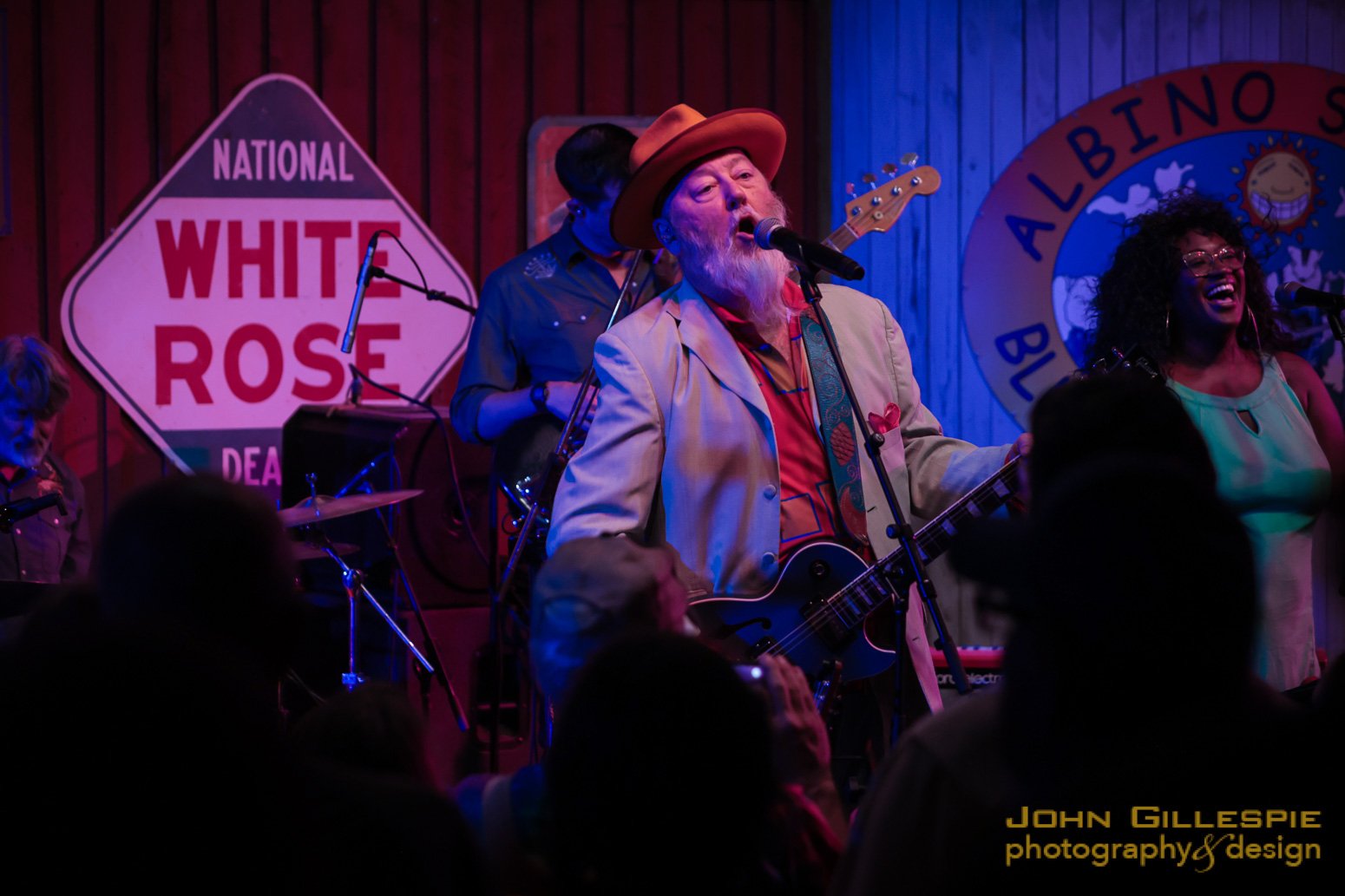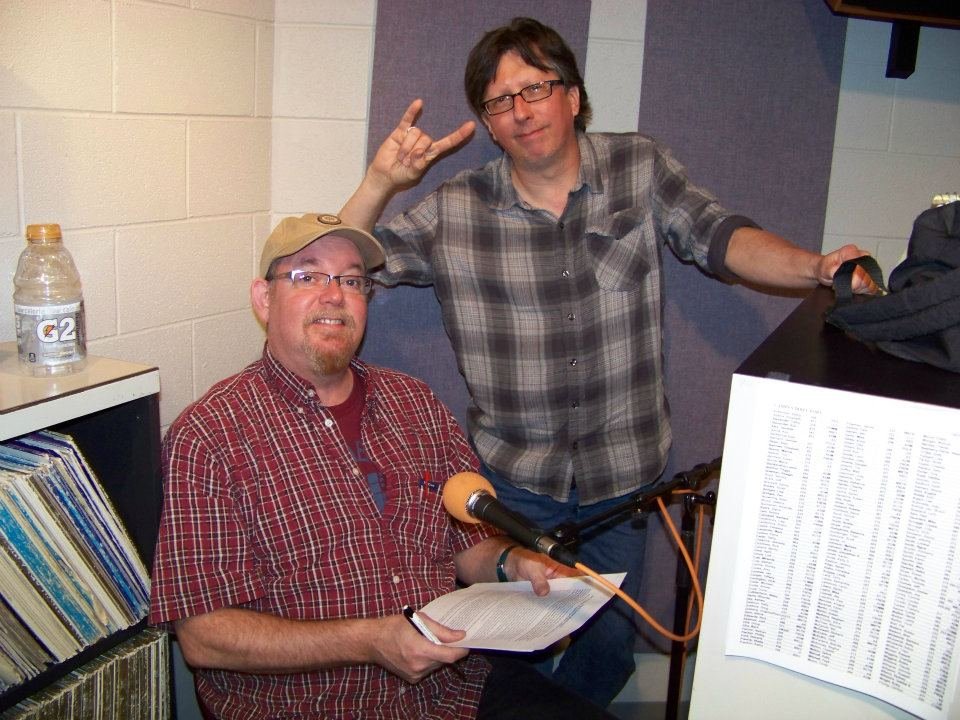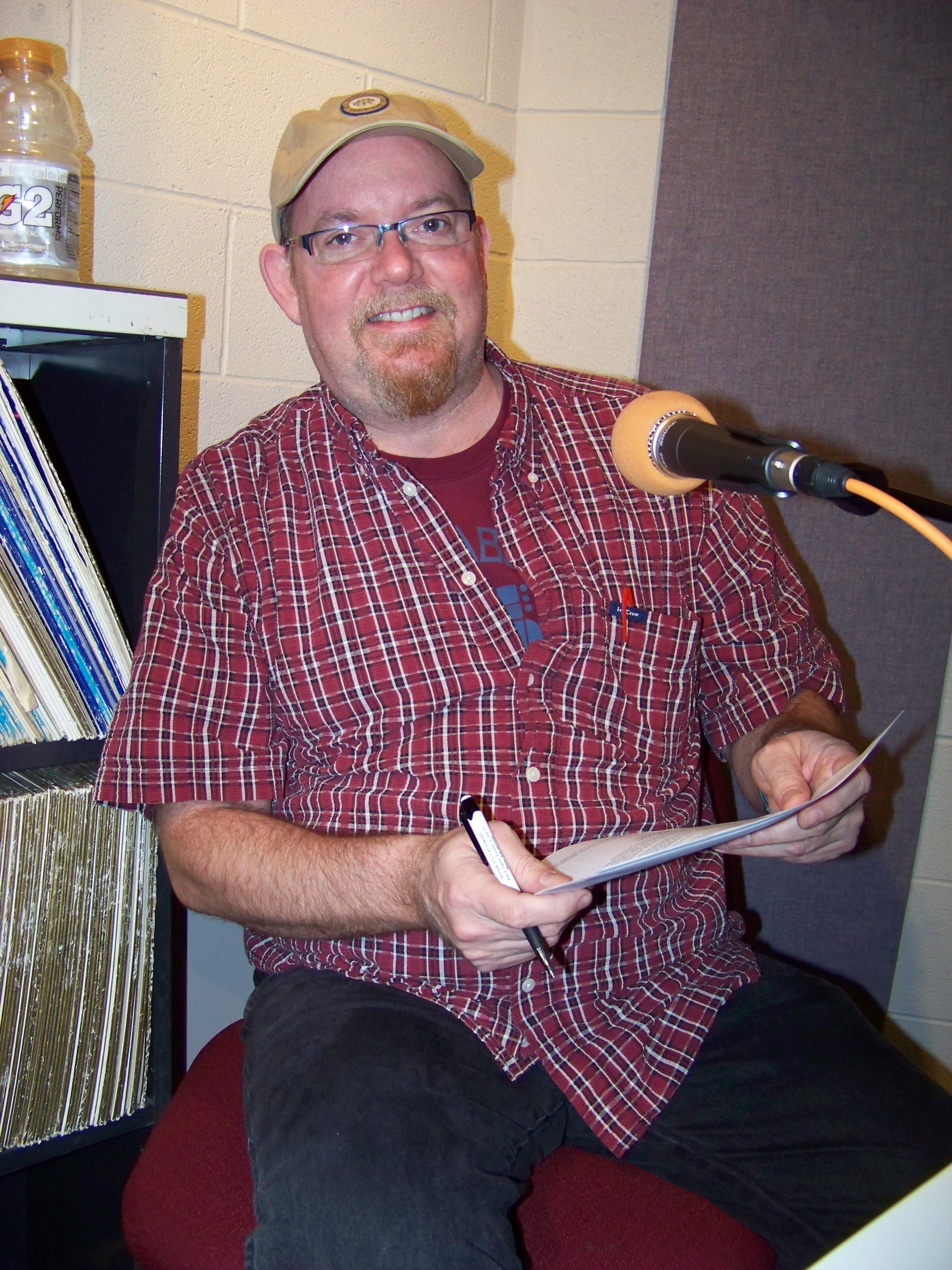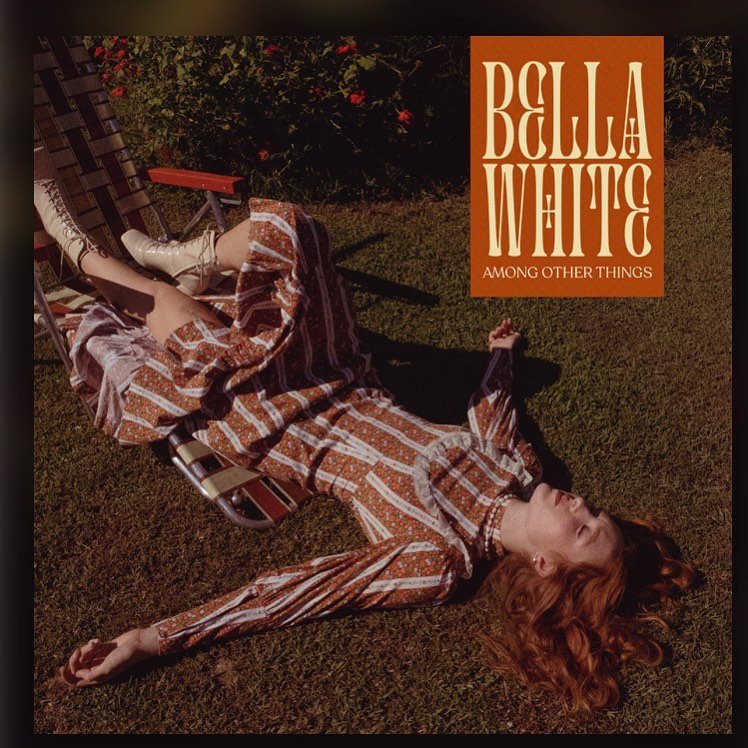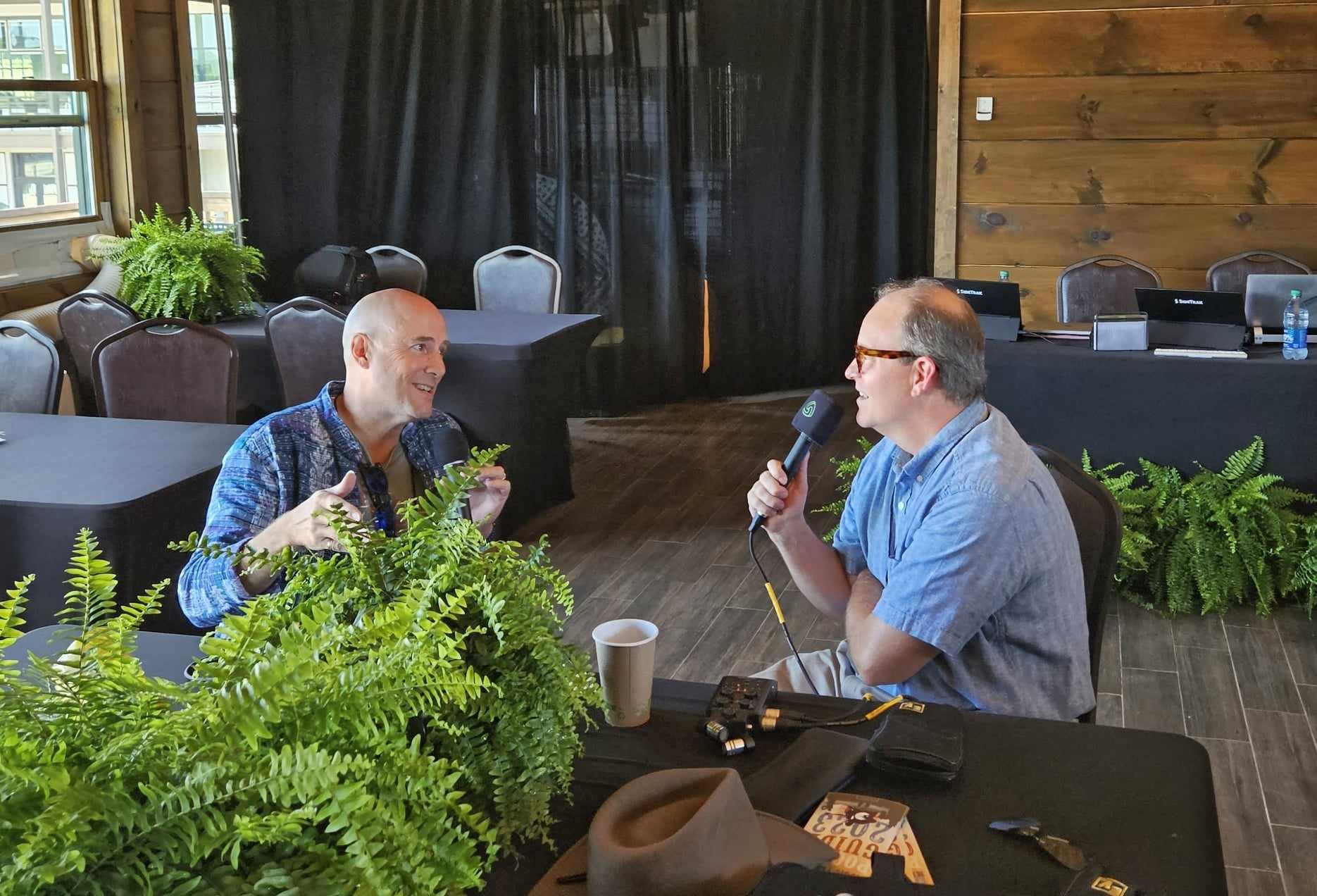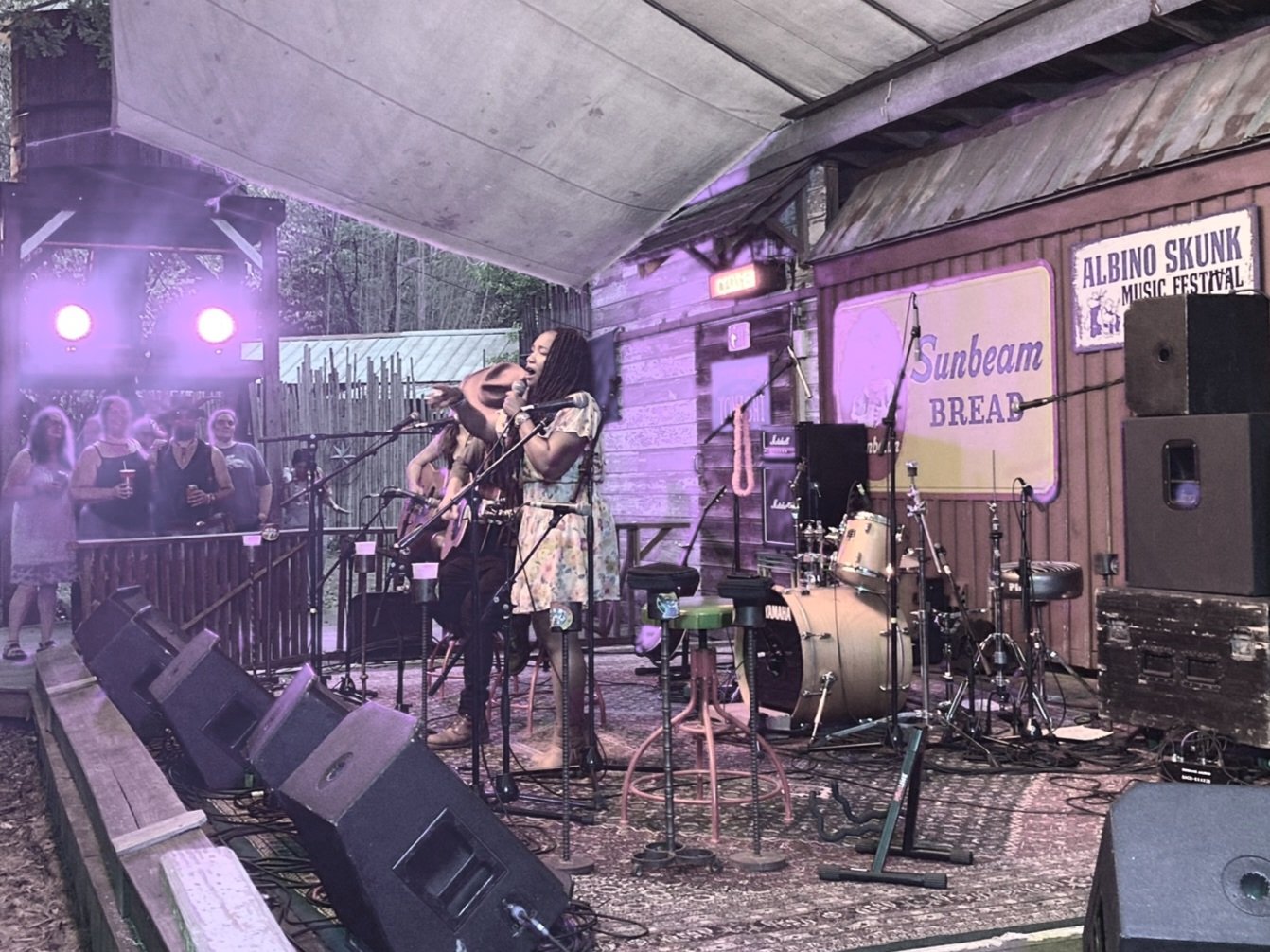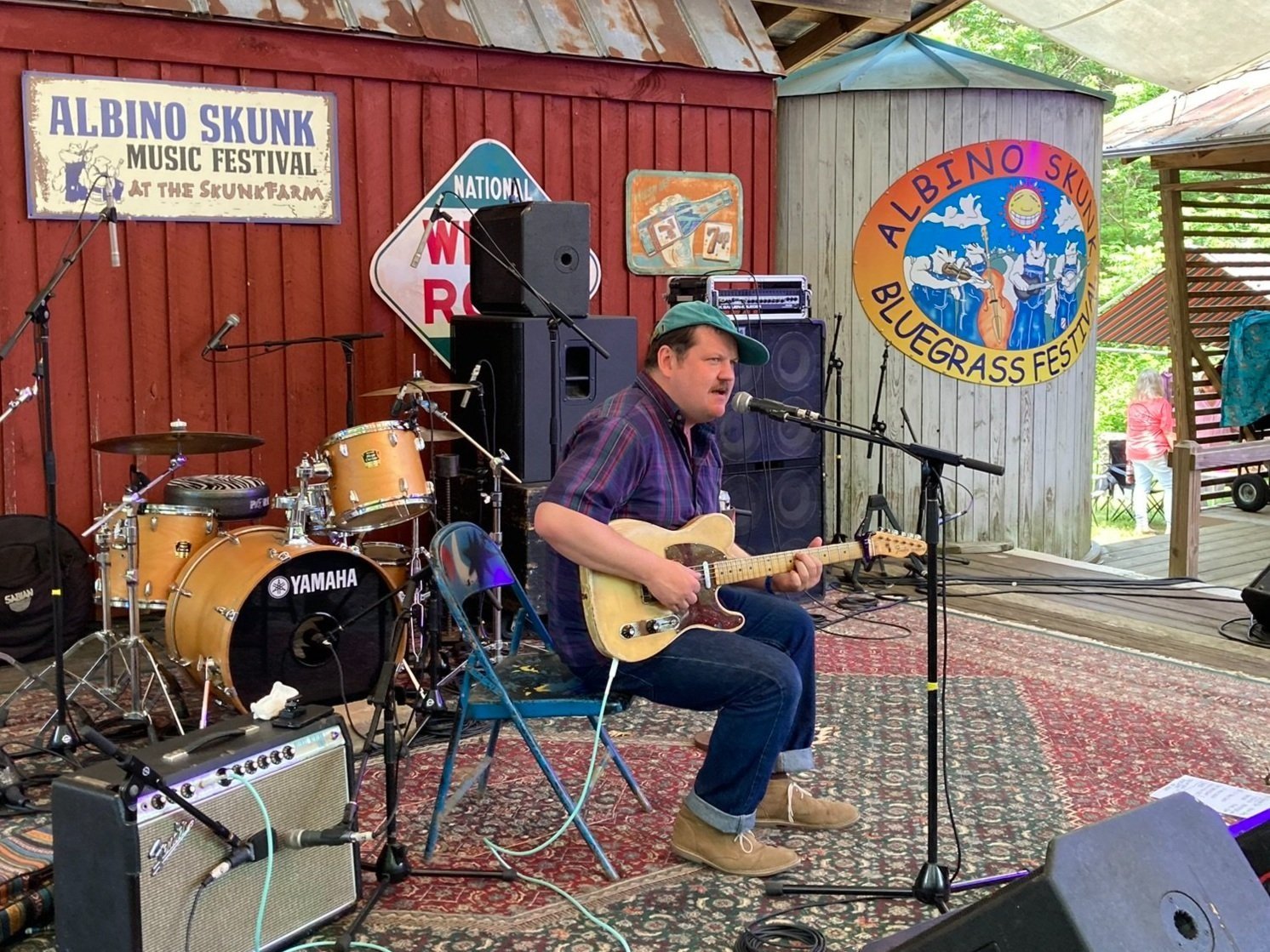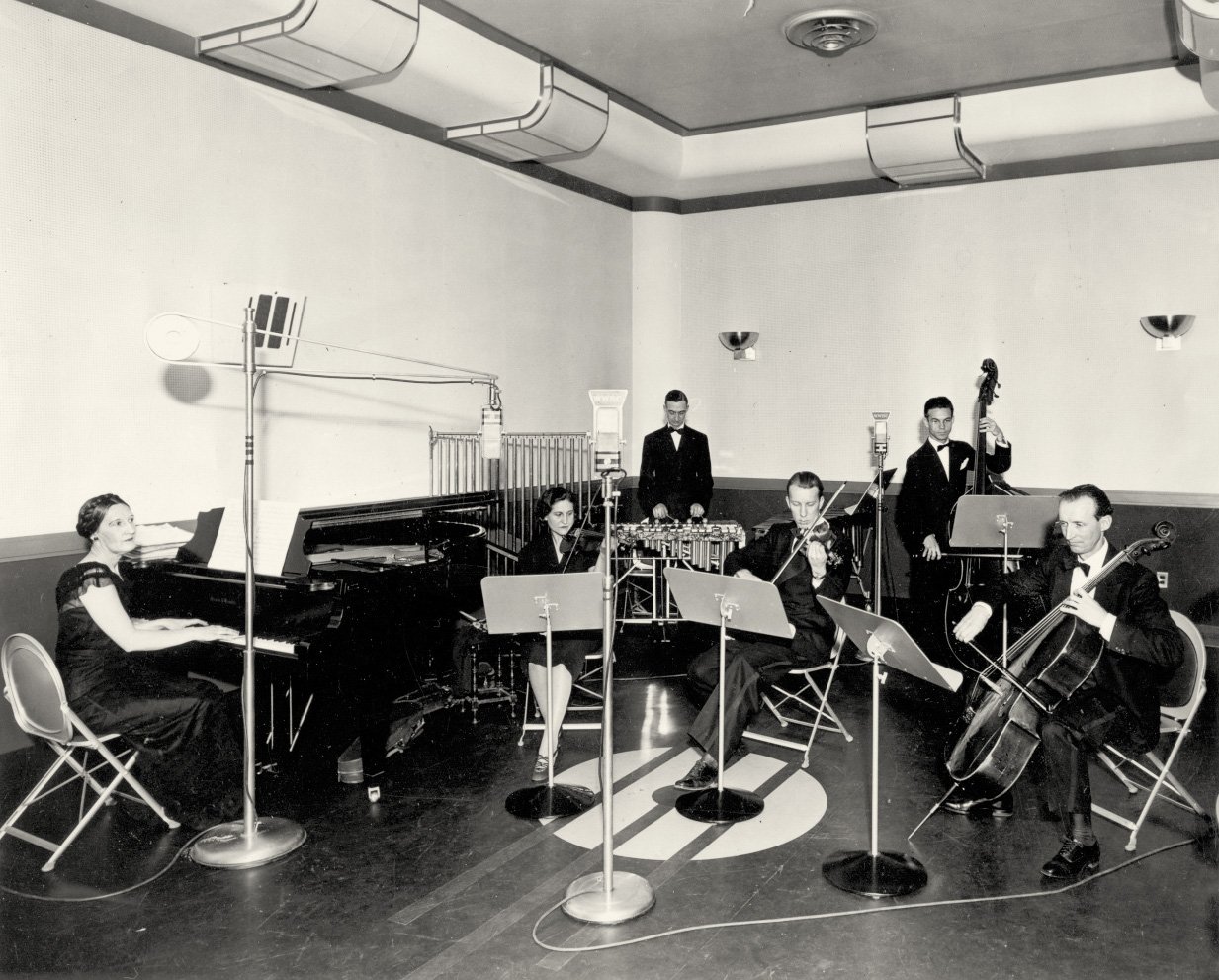It was day five of the IBMAs and I had been up until four that morning, but Stephen Mougin and Ben Wright might have even seen the sun come up that day after they hosted yet another late night music showcase. Technically their showcases shut down around two or three in the morning, but there was always the chance that artists such as Sierra Ferrell might show up and want to jam after folks like myself called it a night, like she did a couple nights before. Such was the atmosphere in Raleigh, NC for the marathon annual fall event — business conference by day, with shows and jam sessions all night. You can probably hear it in our voices that we lacked sleep, but our level of excitement about all of what we had seen and heard remained undiminished.
Stephen Mougin is probably best known for playing guitar in the Sam Bush Band (he is also a producer, engineer, music instructor and band coach), while Ben Wright is the banjo player and a founding member of Henhouse Prowlers (as well as the nonprofit organization Bluegrass Ambassadors); they are also partners in the music label, Dark Shadow Recording. Our conversation touches on the business of bluegrass as well as its culture and history, their insights on the future of the genre, and their work to spread awareness of that music worldwide. Included in this episode is music from the Henhouse Prowlers’ latest album Lead and Iron as well as Stephen Mougin’s solo album Ordinary Soul.
Henhouse Prowlers with producer Stephen Mougin at Dark Shadow Recording studio. (L-R: Jon Goldfine, Jake Howard, Chris Dollar, Stephen Mougin and Ben Wright.) Photo by Madison Thorn.
Songs heard in this episode:
“Lead and Iron” by Henhouse Prowlers, from Lead and Iron
“New Beginnings” by Stephen Mougin, from Ordinary Soul, excerpt
“It’s Not What You Think” by Sam Bush, from Storyman
Thank you for visiting us and giving us a listen! This series is a part of the lineup of both public radio WNCW and Osiris Media, with all of the Osiris shows available here. You can also hear new episodes on Bluegrass Planet Radio here. Thanks to Corrie Askew for producing the radio adaptations of this series on public radio WNCW, and to Joshua Meng, who wrote and performed out theme songs. Thanks also to the staff of IBMA for their help in making our interview possible.
This is Southern Songs and Stories: the music of the South and the artists who make it. - Joe Kendrick
